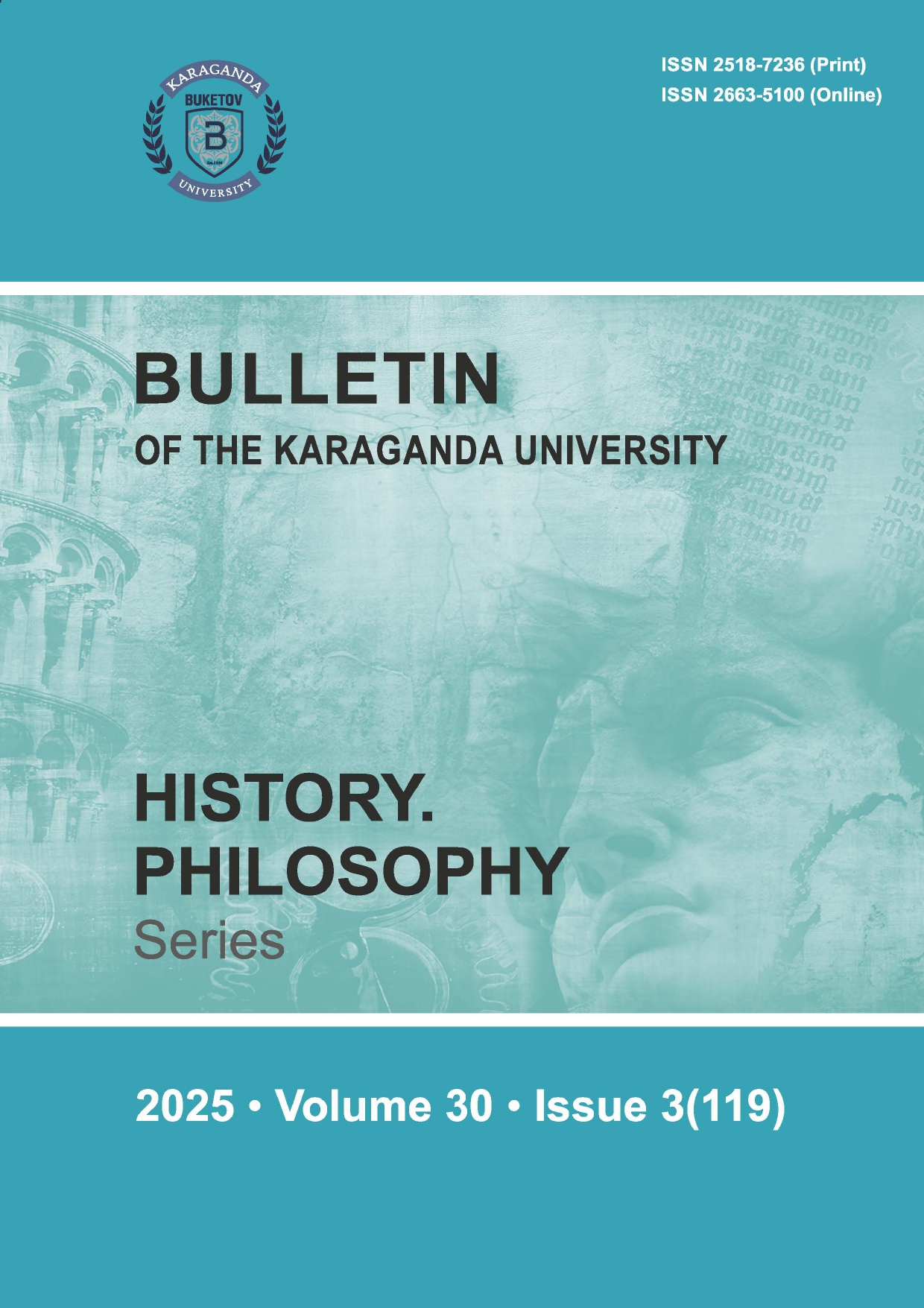A Socio-Philosophical Analysis of the The Family Ritual through the Categories of “Holiday” and “Morality”
DOI:
https://doi.org/10.31489/2025hph3/296-307Keywords:
phenomenon, celebration, right, rest, family, space, morality, communication, v, significane, family celebrations, tradition, rituals, social, justice, social equality, moral, valuesAbstract
The article is a socio-philosophical study of family ritual through the categories of “holiday” and “morality”.According to the authors, family rituals have existential, cultural and socio-ethical significance. The authorsrely on the concepts of M. Eliade, M. Heidegger, W. Turner, T. Adorno and D. Cook, as well as the Kazakhphilosophical tradition of Al-Farabi, A. Kunanbayev, M.S. Shaikemelev, to show the dual nature of familyleisure: its potential as a space of authenticity and care, and its vulnerability to the forces of commercializa-tion and cultural conformism. The analysis covers key aspects: the cyclicality and liminality of holidays, theirrole in the formation of family and cultural identity, the intersubjective dimension of shared time, as well asthe influence of social inequality and global crises on the structure and content of leisure. An important placeis occupied by the Kazakh context, where family holidays are associated with the traditions of nomadic herit-age, the moral ideal of “adam bol” and the ethics of care. The authors argue that the authenticity of a familyholiday is possible only with a shift in emphasis from consumption to presence, from external images to in-ternal meaning. Family recreation is presented as an act of ethical presence and cultural memory, capable ofresisting alienation and preserving the connection between generations. Thus, it acts as a practice of moralimprovement and the embodiment of virtue in the Aristotelian sense, where leisure becomes a space foreudaimonia and moral self-realization of a person




